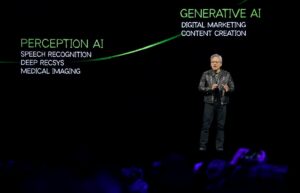AI Weather Models Offer Highly Detailed and Specialized Forecasts

AI Weather Models Promise Super Granular, Specialist Forecasts
The increasing use of artificial intelligence (AI) in the weather forecasting industry is transforming how meteorologists predict weather conditions. With traditional models often falling short in precision, AI is stepping in to offer more detailed and specialized forecasts tailored to specific needs.
Understanding AI in Weather Forecasting
What is AI Weather Forecasting?
AI weather forecasting utilizes machine learning algorithms and vast datasets to analyze weather patterns more efficiently than traditional methods. By processing historical data and real-time information, AI can generate more accurate predictions about weather conditions over short and long periods.
Advantages of AI Models
- Enhanced Precision: AI models can identify patterns and trends in weather data that may be missed by conventional forecasting methods.
- Localized Forecasts: These advanced models provide hyper-local predictions, making it possible for users to obtain forecasts that cater to specific geographic areas.
- Speed: AI technology can process large volumes of data faster than human analysts, leading to quicker forecasts.
How AI Weather Models Work
Data Collection
AI weather models rely on numerous data sources, including:
- Satellite images
- Weather stations
- Radar systems
- Ocean buoys
Collecting this data allows AI to analyze various atmospheric conditions, geographical features, and historical records.
Machine Learning Algorithms
Once the data is collected, machine learning algorithms come into play. These algorithms can learn from existing data patterns, making predictions by recognizing similar conditions from the past. They continuously improve their accuracy by using new data regularly, adapting to changes in climate patterns.
Integration with Traditional Methods
AI does not aim to replace traditional forecasting methods; instead, it complements them. By integrating conventional models with AI, meteorologists can provide forecasts that are more robust and nuanced, considering various factors that affect the weather.
The Future of Weather Forecasting with AI
Increased Adoption of AI Technology
Many meteorological organizations and private companies are investing in AI technology to enhance their forecasting capabilities. This trend is expected to grow as AI continues to demonstrate its effectiveness in predicting weather patterns.
Customization for Various Sectors
AI weather models offer tailored predictions that can meet the needs of different sectors, including:
- Agriculture: Farmers can receive forecasts specific to their fields, helping them make informed decisions about planting and harvesting.
- Event Planning: Organizers can utilize specialized forecasts to choose suitable dates for outdoor events, maximizing attendance and safety.
- Urban Planning: City planners can use localized weather predictions to prepare infrastructure for extreme weather conditions.
Real-Time Updates
As AI technology evolves, real-time updates will become increasingly vital. Users will likely have access to dynamic forecasting tools that adjust according to changing conditions, allowing for better preparedness against adverse weather effects.
Challenges in AI Weather Forecasting
Data Limitations
Despite its advantages, AI weather forecasting still faces challenges. The models depend heavily on quality data, and any gaps or inconsistencies can affect accuracy. Ensuring that data sources remain reliable and up-to-date is crucial.
Complexity of Weather Systems
Weather systems are inherently complex and influenced by numerous factors. While AI can improve predictions, fully mastering these complexities remains a challenge. Continuous research and innovation are necessary to refine AI models further.
Ethical Considerations
With the rise of AI in weather forecasting, ethical implications arise regarding the responsibility for predictions and the impact of erroneous forecasts on public safety and businesses.
Conclusion
The future of weather forecasting looks promising with the integration of AI technology. Enhanced precision, localized forecasts, and real-time updates provide opportunities for better decision-making across various sectors, ensuring that individuals and communities can navigate weather-related challenges more effectively.






